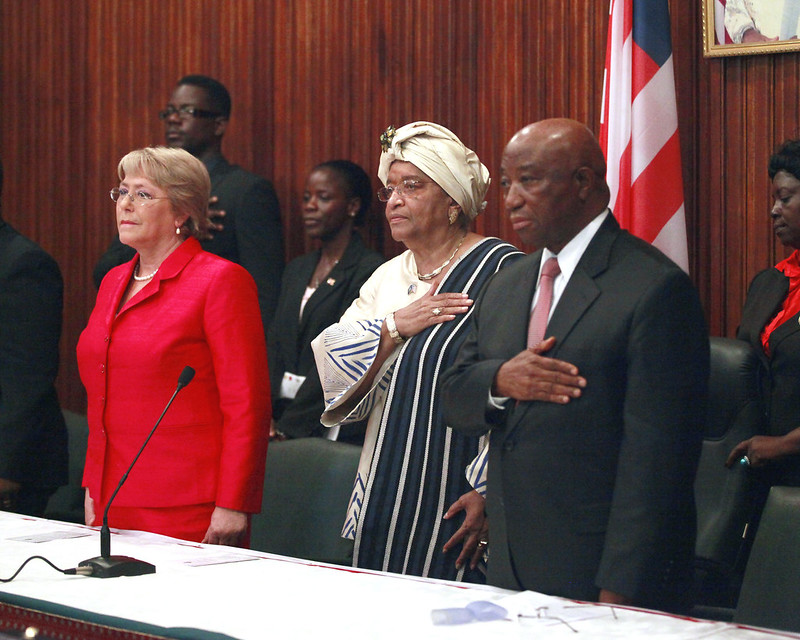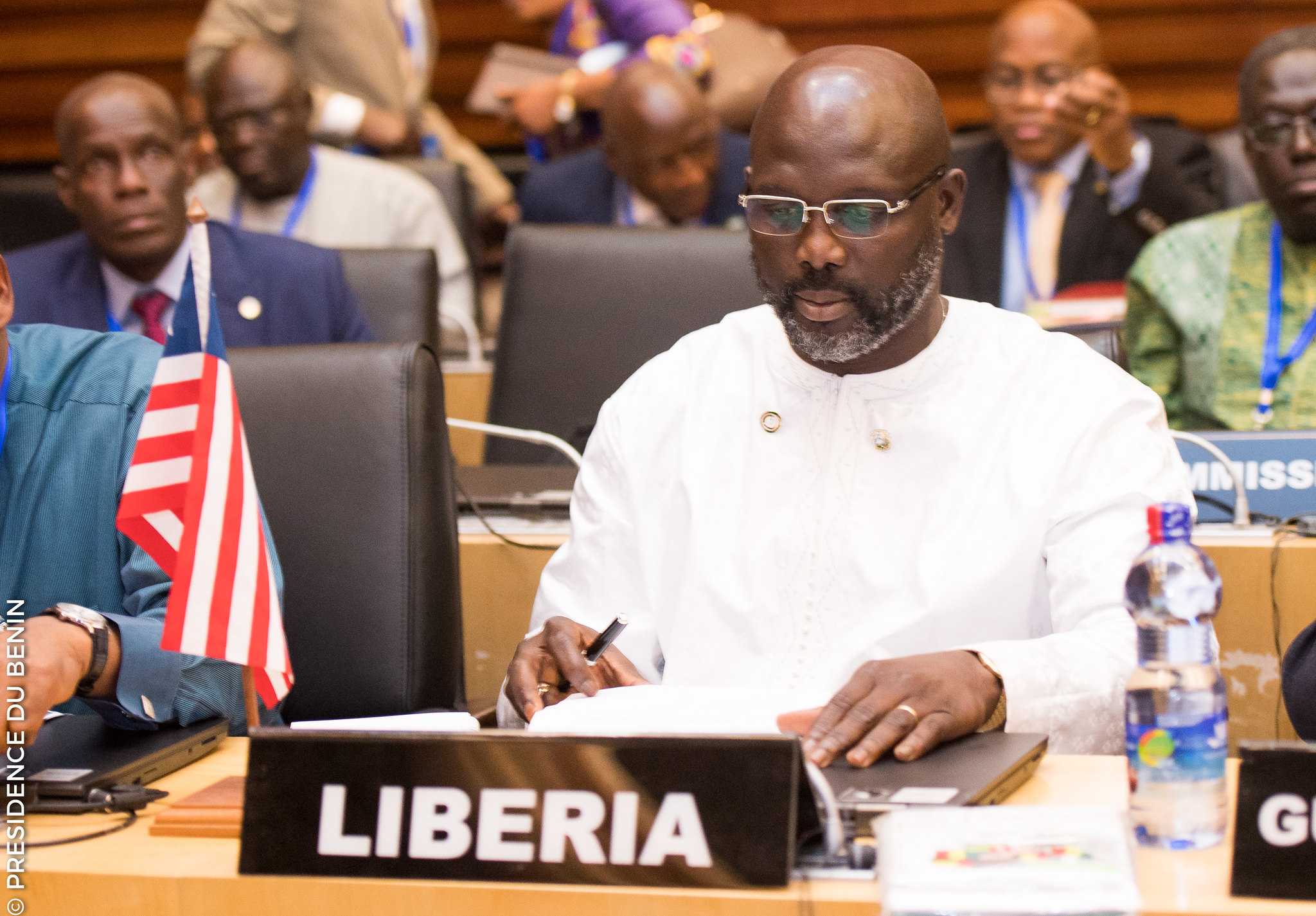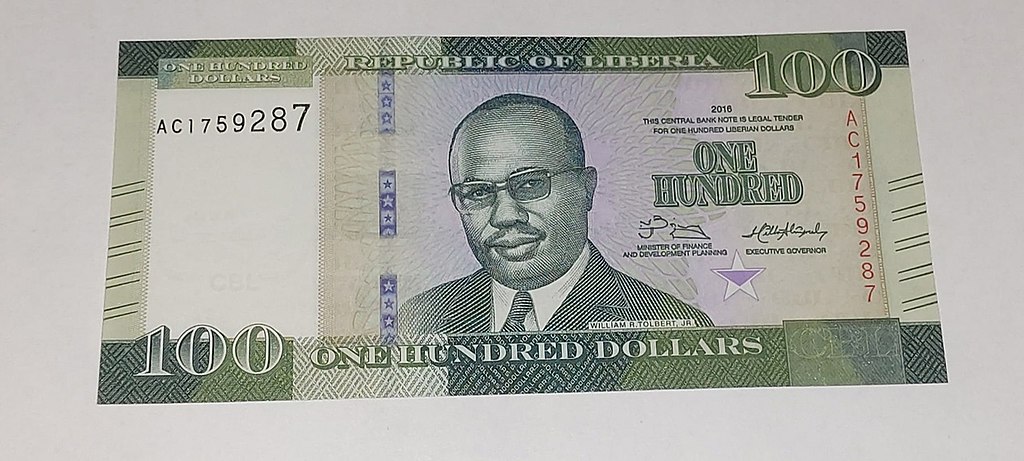Liberia’s newly-elected president Joseph Boakai, who came to power in a coalition arrangement with the party of ex-warlord Prince Johnson, faces a daunting challenge in delivering post-conflict justice and establishing trust and credibility in the regime, writes Thomas Singbeh.
Twenty-one years have elapsed since the end of the harrowing Liberian civil war. The conflict claimed a quarter of a million lives and devastated the country. In the aftermath, successive governments have struggled and ultimately failed to deliver justice for the victims. The recommendations of the 2009 comprehensive report of the Truth and Reconciliation Commission still languish in oblivion, and the perpetrators of the conflict enjoy political privileges shielded by ethnic factionalism.
Many ex-warlords have transitioned into influential figures within the Liberian political landscape. They include Prince Johnson, who is notorious for atrocious acts during the civil conflict. Today, he’s become the darling of the political class and a prominent political kingmaker. Through a combination of pay-for-play political entrepreneurship, involving the exchange of political support for monetary gain, and the leveraging of ethnic politics, Johnson skilfully manipulates the electoral dynamics to his advantage. He holds significant influence over voters in Nimba County, is the second most populous and strategically positioned county in Liberia. This influence is particularly evident during presidential elections. As observed in both the 2017 and 2023 contests, wherever Nimba swings, the presidency follows. Political aspirants actively court Johnson’s support and form opportunistic alliances to secure electoral success.
Johnson initially aided George Weah’s in his successful bid for the presidency in 2017. However, their relationship soured reportedly due to the government’s failure to meet Johnson’s incessant monetary demands or facilitate his tribal politicking. This rift prompted Johnson to seek new political allies, resulting in a coalition arrangement with Joseph Boakai and the Unity Party. This alliance saw Johnson’s Movement for Democracy and Reconstruction (MDR) provide the vice-presidential candidate, Jeremiah Kpan Koung, a protégé of Johnson as a price for support.
Following Boakai’s victory, Koung is now vice-president of Liberia and president of the Liberian Senate. Johnson might have succeeded in chaining another administration to his political will, making it even less likely he will face justice for his actions during the civil war.
In his quest for the presidency, Boakai danced with the devil. Aside from the Johnson-controlled vice president who de facto manages the executive agenda in the legislature, the president has appointed individuals from Prince Johnson’s ethnic and political circles to several key positions within his administration.
During his inaugural address, President Boakai promised to establish a war crimes court. However, he was quickly and sharply rebuked by an unreservedly strident Prince Johnson during a Sunday sermon at his church, where Johnson frequently utilises his pulpit for political propaganda. Johnson’s response suggests a challenging road ahead for Boakai’s agenda. Moreover, Johnson consistently boasts of delivering Nimba’s support to Boakai, positioning himself as instrumental in Boakai’s presidency and framing any attempt to hold him accountable for war crimes as an insult to and assault on the electorates of Nimba. Along with his portrayal of himself as a saviour figure, Johnson’s adeptness at politicising the war crimes court proposal as political persecution and a catalyst for tribal discord, presents a significant challenge to the future of the UP- MDR’s political marriage.
Boakai’s metaphorical ‘dancing with the devil’ raises critical questions about his entanglement in the messy orbit of Johnson’s poli-tricks. Evidently, he finds himself ensnared in a political labyrinth with no easy escape. President Boakai faces the tough challenge of demonstrating the resolve to establish a war crimes court capable of impartially prosecuting perpetrators which he promised voters and balancing the need for Johnson’s support. There’s also a possibility of succumbing to the Johnson-backed narrative of political forgiveness without accountability. Whatever choice is made carries immense weight in shaping the future of post-conflict justice in Liberia and determining the nation’s capacity to heal and progress from its turbulent history. The stakes are exceedingly high, as both choices entail political costs, albeit in varying degrees.
Boakai must confront the inevitable task of fulfilling his campaign pledge and deliver reform and justice in post-conflict Liberia. The odds seem slim, given the entrenched pro-Johnson stance within the administration. However, the profound power of the Liberian presidency leaves room for unexpected shifts. Nothing is predictable and permanent in political alliances, although any sea change from the current trajectory would take considerable political will. The possibility might be improbable, but necessary. The quandary remains whether Boakai is prepared to take the risk. The answer is elusive, as only time will tell. But as the old maxim says, “If you dance with the devil, he doesn’t change; he changes you.”
Photo credit: United Nations used with permission CC BY-NC-ND 2.0 DEED





